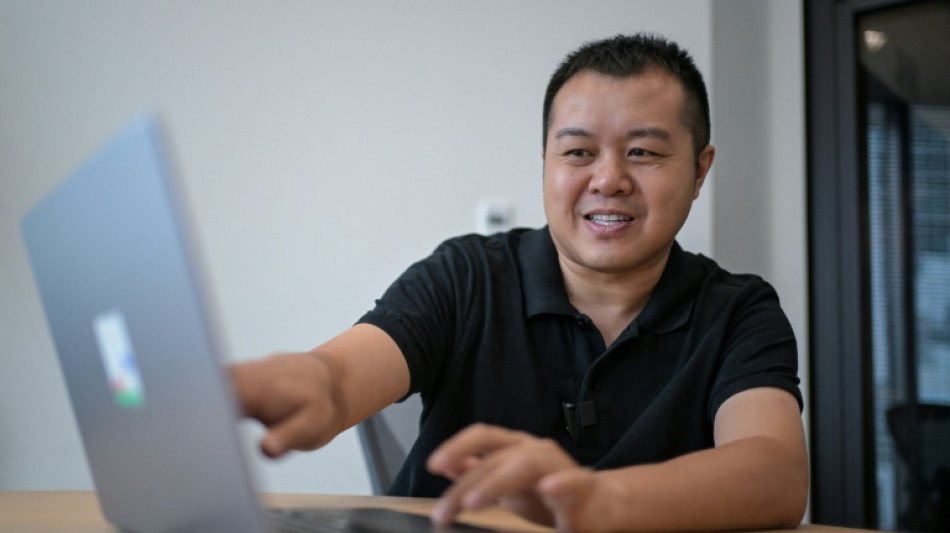
-
 France appoints new president at Louvre after jewellery heist
France appoints new president at Louvre after jewellery heist
-
Germany's Merz meets Xi in China, seeking closer ties
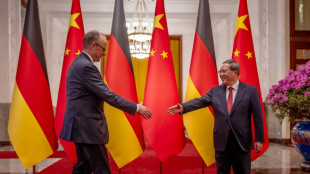
-
 Aston Martin slashes staff as US tariffs hit carmakers
Aston Martin slashes staff as US tariffs hit carmakers
-
Chief executive of 2030 Olympic Games becomes latest director to quit

-
 Rubio meets Caribbean leaders as US raises pressure on Cuba
Rubio meets Caribbean leaders as US raises pressure on Cuba
-
Head of France's Versailles Palace to take over Louvre: source to AFP

-
 England's Brook gains redemption after 'hardest winter of my life'
England's Brook gains redemption after 'hardest winter of my life'
-
Iran dismisses missile, nuclear claims after Trump alleges 'sinister ambitions'

-
 Inside the Mexican resort that was the final hideout of 'El Mencho'
Inside the Mexican resort that was the final hideout of 'El Mencho'
-
Somaliland pins hopes on critical mineral gold rush

-
 Bejart Ballet's iconic Bolero ignites Istanbul
Bejart Ballet's iconic Bolero ignites Istanbul
-
Sri Lanka arrests ex-spy chief over 2019 Easter bombings

-
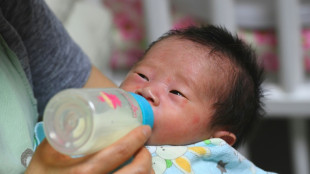 South Korea birth rate jumps but still under key fertility threshold
South Korea birth rate jumps but still under key fertility threshold
-
Democrats bet on centrism in rebuttal to Trump speech

-
 Australian police arrest two over alleged kidnapping, murder of grandfather
Australian police arrest two over alleged kidnapping, murder of grandfather
-
Redknapp's Gold Cup dream sparked by late grandmother
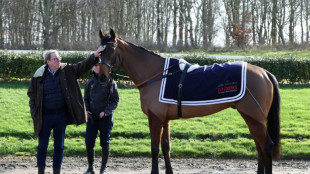
-
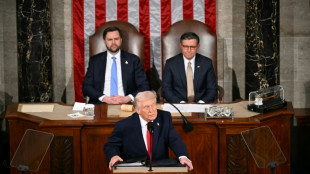 Trump tries to reset presidency in State of the Union speech
Trump tries to reset presidency in State of the Union speech
-
Harden hails 'special' Cavs after emphatic win over Knicks

-
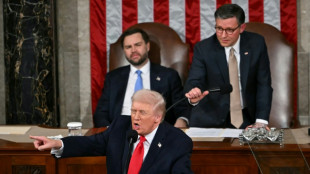 Division, theater and one golden moment as Trump addresses Congress
Division, theater and one golden moment as Trump addresses Congress
-
Humble Japan ready to win hearts at Women's Asian Cup
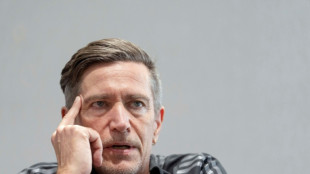
-
 New Zealand mayor swims to allay sewage contamination fears
New Zealand mayor swims to allay sewage contamination fears
-
Trump vows 'turnaround for the ages' in State of the Union
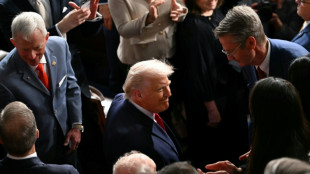
-
 Marquez targets eighth MotoGP title as season opens in Thailand
Marquez targets eighth MotoGP title as season opens in Thailand
-
Months after floods, Indonesian survivors frustrated by slow response

-
 Tech firms lead Asian markets rally as Seoul, Tokyo hit records
Tech firms lead Asian markets rally as Seoul, Tokyo hit records
-
Nepali migrant workers influence polls, but can't vote
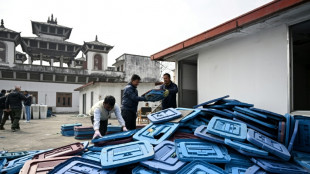
-
 Canadians are choosing when to die, often with a smile
Canadians are choosing when to die, often with a smile
-
Trump to promise 'turnaround for the ages' in State of the Union
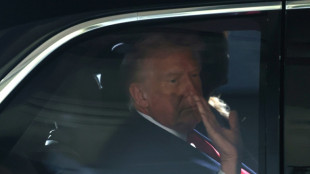
-
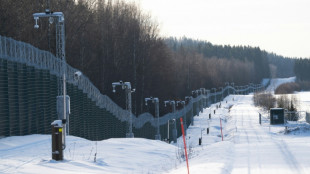 Economy not Russia is big fear on Finland's closed frontier
Economy not Russia is big fear on Finland's closed frontier
-
Alexandria bids farewell to historic tram in latest urban upheaval

-
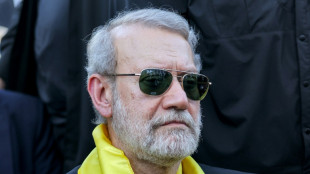 The veteran 'insider' shaping Iran's nuclear policy
The veteran 'insider' shaping Iran's nuclear policy
-
'Jaws' harpoon gun and 'Star Wars' treasures lead LA film and TV auction

-
 UraniumX Plans for Ground Gravity Survey at Zoo Bay Project, Athabasca Basin
UraniumX Plans for Ground Gravity Survey at Zoo Bay Project, Athabasca Basin
-
Who is the Best Plastic Surgeon in the Pacific Northwest?

-
 FireFox Gold Reports Second Best Intercept Ever at Mustajärvi Project: New Target Between Northeast and East Zone Returns 7.6 Metres at 32.25 g/t Gold with Visible Gold
FireFox Gold Reports Second Best Intercept Ever at Mustajärvi Project: New Target Between Northeast and East Zone Returns 7.6 Metres at 32.25 g/t Gold with Visible Gold
-
Grande Portage Resources Secures Drilling Contractor for 2026 Program at the New Amalga Gold Project and Provides Project Update

-
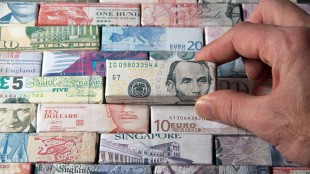 EQS Group Partners with Ground Truth Intelligence to Strengthen Enhanced Due Diligence Capabilities in the Compliance Cockpit
EQS Group Partners with Ground Truth Intelligence to Strengthen Enhanced Due Diligence Capabilities in the Compliance Cockpit
-
Chancery Royalty Secures US$20 Million Royalty with KEFI Gold & Copper Plc for Tulu Kapi Gold Project

-
 Noram Adds Additional Critical Mineral to List of High-Value Byproduct Credits in Zeus Project Upgraded PEA
Noram Adds Additional Critical Mineral to List of High-Value Byproduct Credits in Zeus Project Upgraded PEA
-
InterContinental Hotels Group PLC Announces Transaction in Own Shares - February 25

-
 Pentixapharm Receives FDA "Study May Proceed" Letters for Dual Theranostic INDs in CXCR4-Based Hemato-Oncology Program
Pentixapharm Receives FDA "Study May Proceed" Letters for Dual Theranostic INDs in CXCR4-Based Hemato-Oncology Program
-
Tocvan Builds Momentum at Gran Pilar: Six Exploration Holes Drilled, Drone Mag Survey and Water Monitoring Wells for Pilot Completed

-
 Brazil prosecutor urges politicians' conviction in murder of black councilwoman
Brazil prosecutor urges politicians' conviction in murder of black councilwoman
-
Starved of fuel, Cubans scramble to make ends meet

-
 Giant killers Bodo/Glimt continue remarkable rise with Inter triumph
Giant killers Bodo/Glimt continue remarkable rise with Inter triumph
-
Bodo/Glimt knock Inter out of Champions League as Newcastle, Atletico reach last 16

-
 Australian Open chief Tiley steps down to take top US job
Australian Open chief Tiley steps down to take top US job
-
Crime capital no more: El Salvador tourism boosted by Bukele

-
 FIFA boss 'very reassured' about World Cup in Mexico despite violence
FIFA boss 'very reassured' about World Cup in Mexico despite violence
-
15 states sue Trump administration over child vaccine policy


Top Japan start-up Sakana AI touts nature-inspired tech
When David Ha started an AI company in Japan with his former Google colleague, they had a choice: create another huge, energy-intensive tool like ChatGPT, or go their own way.
Since its 2023 launch, the value of their firm Sakana AI has soared past $1 billion, becoming Japan's fastest start-up to reach so-called unicorn status.
"In a space like AI, everyone's kind of doing the same thing. They're just like collecting the world's data, building a gigantic model, sucking up all this energy," Ha told AFP.
For a new venture, "the chance of success is actually quite low, especially in Japan", where the resources to run power-hungry data centres are scarce.
Instead of going head-to-head with top players like OpenAI or Alibaba, Sakana aims to merge existing and new systems, large and small, to develop what it calls "collective intelligence".
In many countries, "people are debating, should I use a Chinese model or should I use a US model?" Ha said, referring to AI foundation models trained on vast amounts of data.
But in today's tumultuous world, "you can imagine... a scenario where a certain provider might turn off their models", he added.
Combining the best aspects of multiple systems means Sakana's AI-powered programmes could in theory "continue to operate", he said, even if "with slightly lower performance at the beginning".
Sakana's approach has won it the support of US chip giant Nvidia as well as Japanese banks and other businesses keen to get ahead in the fast-moving world of generative artificial intelligence.
The word sakana means fish in Japanese, and the start-up says it is inspired by nature, where species from ants to humans collaborate to solve problems.
- 'Soft power' -
Ha, a Hong Kong-born Canadian and long-term Japan resident, is a former Google Brain research scientist who previously traded derivatives for Goldman Sachs.
He founded Sakana AI with ex-Google researcher Llion Jones, co-author of a groundbreaking 2017 machine learning paper, and Ren Ito, who has held positions in Japan's foreign ministry.
Sakana's team numbers more than 100, including contractors, and its unassuming offices are located in a shared Tokyo start-up space.
Japan is pouring tens of billions of dollars into AI and semiconductors, hoping to claw back some of its 1980s tech glory and boost the productivity of its shrinking workforce.
But there is some way to go. In academic institute IMD's 2025 World Competitiveness Ranking, Japan came 35th, with researchers saying it needs to foster entrepreneurship and address labour shortages caused by its ageing population.
"There are a lot of business challenges in Japan", where working environments are "very different" to Europe, China or the United States, Ha said.
But "building from the ground up" is an advantage for Sakana AI, which is "taking advantage of Japan's soft power" to attract talented software engineers.
In starting the company, Ha has put down roots in Japan, which "has its problems" but remains "a leading democracy in Asia", he said.
- Experimentation -
The tools developed by Sakana AI include a Japanese-language chatbot called "Tiny Sparrow" that works offline, protecting users' privacy.
Another trained on historical Japanese literature responds to text queries in samurai-like language.
Some coders have pointed out problems in the output of Sakana projects such as AI Scientist -- a bid to automate scientific discovery, whose paper passed a peer-review process this year -- and in others built to improve the efficiency of AI engineering.
"We have to experiment," Ha said. In academia and business, too, "things may not go your way, and we learn from that".
In any case, "people take these concepts very seriously" and work can progress quickly -- like the evolution of AI-generated video from "blobby" images to hyper-realism, he said.
In May, Sakana announced a "multi-year partnership" with Japanese megabank MUFG to develop "bank-specific AI systems".
While Ha wants to keep Sakana's AI research team small and "niche", the arm of the start-up that helps Japanese businesses and the public sector deploy AI is growing.
"It is a challenge to balance between working on cutting-edge... AI development, and on the business side to deploy trusted solutions that are known to work," he said.
Ha predicts that investors' excitement around AI will inevitably taper.
"Every major technological revolution, from canals to the dot-com boom, has been fuelled by a bubble," he said.
"That speculative investment, while risky, is what funds the foundational breakthroughs."
F.Bennett--AMWN



